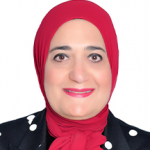Background
In light of growing global displacement, host countries face increasing pressure to provide inclusive and sustainable access to social protection (SP) and health services for Refugees and Asylum Seekers (RAS). This is particularly pressing in Egypt and the wider MENA region, where national systems were not originally designed to serve non-nationals at scale. While humanitarian actors continue to fill critical gaps, there is a growing international consensus that long-term solutions must center on inclusive, nationally led systems. This study responds to that imperative by exploring how Egypt’s evolving Universal Health Insurance Scheme (UHIS) could serve as an entry point for RAS inclusion, drawing on international norms and comparative country experiences.
Methods
The study employed a mixed-methods approach. It combined an extensive desk review of national legal and policy frameworks, programmatic documentation, and secondary data with 23 semi-structured key informant interviews (KIIs). These interviews were conducted with representatives from government ministries, UN agencies, NGOs, and development partners. The research also drew on comparative case studies from Jordan, Lebanon, Turkey, and Uganda—countries that have implemented various models of RAS inclusion in national social protection and health systems. The analysis focused on legal, institutional, and financing dimensions, with particular attention to the potential for RAS inclusion under Egypt’s Universal Health Insurance Scheme (UHIS), introduced through Law No. 2 of 2018 .
Findings
The study identifies five major findings:
Fragmented Systems: RAS in Egypt primarily access services through humanitarian channels—largely parallel to national systems—limiting sustainability and efficiency.
Legal and Policy Gaps: Egypt’s legal framework currently lacks explicit provisions for RAS inclusion in the UHIS, despite international commitments to non-discrimination and equal access.
Underfunded Humanitarian Health Response: Between 2023 and 2025, the RAS population more than tripled, while health sector funding decreased in relative terms, creating a widening service gap.
Promising International Practices: Turkey and Uganda provide relevant models for integrating RAS into national systems, leveraging donor support, legal reform, and institutional coordination.
Egypt’s Reform Potential: Egypt’s UHIS offers a viable platform for gradual RAS inclusion. However, this will require legal amendments, sustainable financing, interagency coordination, and pilot implementation models.
Recommendations
To support inclusive, rights-based social protection and health access, the report recommends:
Legal and Policy Reform: Amend relevant legislation to enable RAS enrollment in UHIS, in line with Egypt’s international obligations.
Sustainable Financing: Develop co-financing arrangements involving government, development partners, and refugees themselves, where feasible.
Institutional Coordination: Strengthen collaboration among national ministries, UN agencies, and humanitarian actors to align planning, eligibility, and service delivery.
Pilot Integration Models: Initiate pilot programs in selected governorates to assess feasibility and generate lessons for national scale-up.
Knowledge Exchange: Facilitate structured learning from peer countries with established RAS-inclusive models.
This study highlights a critical moment for Egypt to align humanitarian and development responses, moving toward integrated systems that serve both host and refugee populations more equitably and efficiently.
This Policy Research Report is supported by the United Nations Children's Fund (UNICEF), the International Labour Organization (ILO), the United Nations High Commissioner for Refugees (UNHCR), and the World Food Programme (WFP). The views expressed in this report are solely those of the authors and do not necessarily reflect the official positions of supporting agencies.

Speakers
Sherine Al-Shawarby
Professor of Economics, Cairo University

Authors
Dina Abdel Fattah
Assistant Professor and Interim Chair, Department of...

Authors
Nour Khaled Abou-Ismail
Policy Support Specialist, FAO


